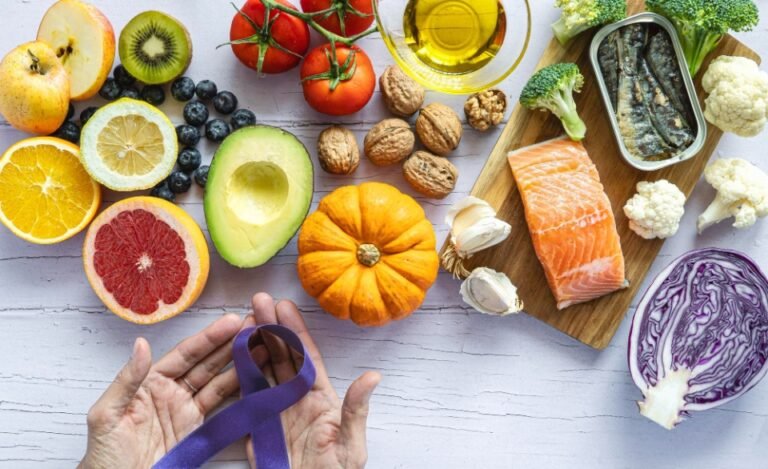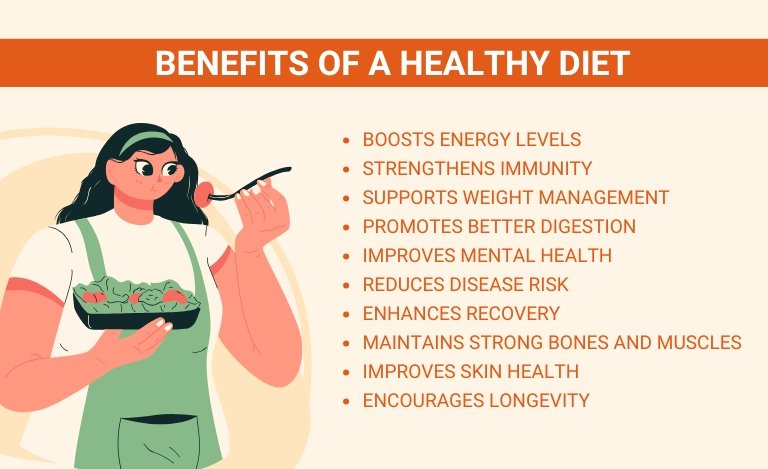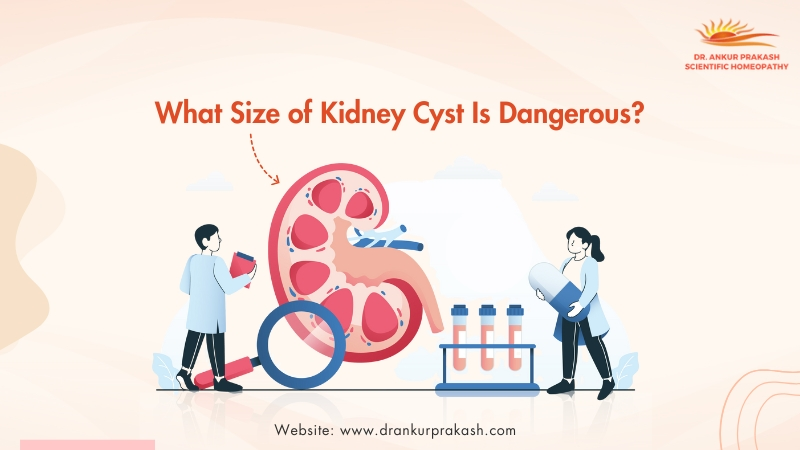A healthy diet for cancer patients focuses on strength and recovery with fresh fruits, vegetables, whole grains, lean proteins, and healthy fats to boost immunity. Staying hydrated and avoiding processed or sugary foods is key. Balanced meals improve well-being and help manage side effects, especially when guided by a Homeopathy Cancer Doctor for holistic care.
How does food affect the health of cancer patients?
Food plays a vital role in the health of cancer patients. A nutritious diet helps strengthen the immune system, improve energy levels, and support the body during treatment. Eating the right foods can reduce side effects like fatigue, nausea, or weight loss while promoting faster recovery. Fresh fruits, vegetables, whole grains, and lean proteins provide essential nutrients that help repair tissues and fight infections. On the other hand, processed and sugary foods may lower energy and weaken immunity. Choosing a balanced diet tailored to individual needs makes a big difference in the overall well-being of cancer patients.
Why is your diet important during cancer treatment?
Your diet is a crucial part of your journey during cancer treatment. The food you eat provides the energy and nutrients your body needs to stay strong and heal. A healthy diet helps boost your immune system, manage side effects like fatigue or nausea, and maintain your weight. Incorporating Diet Plans for Cancer Patients, which include fresh fruits, vegetables, whole grains, and proteins, can make treatments like chemotherapy or radiation more manageable and aid in smoother recovery. Eating balanced meals ensures you feel better, stay energized, and improve your overall quality of life during this challenging time.

What foods are good to eat during cancer treatment?
During cancer treatment, eating the right foods can make a big difference in how you feel and recover. Fresh fruits and vegetables are packed with vitamins and antioxidants that help strengthen your immune system. Whole grains like brown rice and oats provide energy, while lean proteins such as fish, chicken, eggs, and plant-based options like lentils and tofu support tissue repair. Healthy fats from nuts, seeds, and avocados can also be beneficial. Cancer treatment often causes side effects, so staying hydrated by drinking plenty of water and including soothing fluids like herbal teas or clear broths is essential. Choosing easy-to-digest, nutrient-rich foods ensures your body gets the nourishment it needs to support your recovery and overall health.
Are there foods that fight cancer?
While no single food can cure cancer, certain foods have properties that may help the body fight it and support overall health. Fruits like berries and oranges are rich in antioxidants, which protect cells from damage. Vegetables like broccoli, spinach, and tomatoes contain vitamins, minerals, and compounds that may slow cancer growth. Whole grains, beans, and nuts provide fiber, which supports a healthy digestive system. Green tea and turmeric are also known for their anti-inflammatory and immune-boosting benefits. Including these nutrient-rich foods in your diet can strengthen your body and contribute to better health during Cancer Treatment.

Foods for cancer patients to avoid
For cancer patients, avoiding certain foods can help improve overall health and make treatment more effective. Processed foods like packaged snacks, fast food, and sugary treats can weaken the immune system and provide little nutritional value. Red and processed meats, such as bacon and sausages, should also be limited due to their links to inflammation. Fried and oily foods can be hard to digest and may worsen nausea or discomfort. Alcohol and sugary drinks can disrupt energy levels and hydration. Choosing fresh, wholesome, and nutrient-rich foods instead of these options can support recovery and promote better well-being during treatment.

Benefits of a Healthy Diet
Eating a healthy diet offers countless benefits for both the body and mind. Here’s how it helps:
1. Boosts Energy Levels
Eating balanced meals that include complex carbohydrates, proteins, and healthy fats helps maintain steady energy throughout the day. Nutrient-dense foods like nuts, whole grains, and leafy greens fuel your body with the energy it needs to stay active and alert.
2. Strengthens Immunity
Nutrient-rich foods such as fruits, vegetables, and herbs are packed with vitamins (like C and E) and antioxidants, which help strengthen your immune system. These nutrients protect your body from infections and reduce inflammation, keeping you healthier in the long run.
3. Supports Weight Management
A diet filled with whole foods, lean proteins, and healthy fats helps maintain a healthy weight. Avoiding sugary and processed foods reduces the risk of obesity and related chronic conditions like diabetes or heart disease.
4. Promotes Better Digestion
Eating high-fiber foods, such as whole grains, legumes, and vegetables, keeps your digestive system functioning smoothly. Probiotic-rich foods like yogurt and fermented products balance gut bacteria, promoting overall digestive health.
5. Improves Mental Health
Foods rich in omega-3 fatty acids (like fish, nuts, and seeds) and vitamins (like B6 and folate) improve brain function and mood. Proper nutrition can reduce stress, anxiety, and depression by regulating hormones and supporting neurotransmitter activity.
6. Reduces Disease Risk
A balanced diet lowers the risk of chronic illnesses like heart disease, high blood pressure, diabetes, and certain cancers. Antioxidant-rich foods like berries, tomatoes, and spinach help prevent cell damage and inflammation, reducing long-term health risks.
7. Enhances Recovery
During illness or injury, the body needs extra nutrients to repair tissues and regain strength. Foods rich in proteins, vitamins, and minerals help speed up recovery and reduce fatigue.
8. Maintains Strong Bones and Muscles
Calcium-rich foods like dairy products, green vegetables, and fortified alternatives keep your bones strong. Proteins from lean meat, fish, tofu, and beans repair muscle tissues, supporting physical strength and mobility.
9. Improves Skin Health
Hydrating foods like cucumbers, watermelon, and foods rich in antioxidants (such as carrots and citrus fruits) promote healthy, glowing skin. They protect the skin from damage caused by free radicals and keep it moisturized from within.
10. Encourages Longevity
A diet rich in whole foods, healthy fats, and essential nutrients supports overall well-being and longevity. By reducing the risk of chronic diseases and improving physical and mental health, a healthy diet contributes to a longer, healthier life.
Disclaimer: The information provided in this content is for informational purposes only and is not a substitute for professional medical advice, diagnosis, or treatment. Always consult your doctor, dietitian, or healthcare professional for personalized guidance, including dietary recommendations and treatments. Individual needs and responses may vary, especially during cancer treatment. The content is intended to support your understanding but should not replace expert advice tailored to your specific medical condition.







